Honorary Professors
John O'Brien
John O’Brien is Emeritus Professor of French, Durham University, and a former Director of IMEMS. He taught at the Universities of Liverpool and London before moving to Durham, and has been Visiting Professor at Paris-VII and Tours, and British Academy Exchange Fellow at the Newberry Library. He has also been visiting scholar at Oxford, Michigan, and Dartmouth. The epicentre of his research is the period of the French Wars of Religion (1562-98), and in particular the writers Michel de Montaigne (1533-92) and Estienne de La Boétie (1530-63). Among his recent publications (undertaken in collaboration with Marc Schachter) are La Première Circulation de la ‘Servitude volontaire’ en France et au-delà (Paris: Champion, 2019) and Sedition: The Spread of Controversial Literature and Ideas in France and Scotland, c. 1550-1610 (Turnhout: Brepols, 2022). Both of these projects grew out of the IMEMS’ research strand ‘French Books and their European Readers’. He recently edited a special number of the journal Early Modern French Studies devoted to La Boétie (vol. 44/1, 2022) and has just completed a monograph entitled De manuscrit en bibliothèque. Actualité historique et mouvement chez La Boétie, to be published by Éditions Classiques Garnier in 2024.
Krista Kesselring
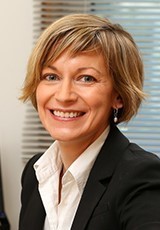 Krista Kesselring received her PhD from Queen’s University (Canada) in 2001, specializing in British history, and is now a University Research Professor at Dalhousie University. A social historian of law, she has particular interests in violence, protest, and gender. Her publications include Making Murder Public: Homicide in Early Modern England (2019), The Northern Rebellion of 1569: Faith, Politics and Protest in Elizabethan England (2007), and Mercy and Authority in the Tudor State (2003). She has also published collections of sources on the Court of Star Chamber and on the trial of Charles I, and has co-edited two essay collections: Crossing Borders: Boundaries and Margins in Medieval and Early Modern Britain (2018, with Sara M. Butler) and Married Women and the Law: Coverture in England and the Common Law World (2013, with Tim Stretton). She has held visiting fellowships at the Huntington and Folger Shakespeare libraries and, more recently, with Durham University’s Institute of Advanced Studies and IMEMS. She is currently continuing work on Star Chamber and on the history of marriage and divorce. Krista is also a series editor for Durham University IMEMS Press.
Krista Kesselring received her PhD from Queen’s University (Canada) in 2001, specializing in British history, and is now a University Research Professor at Dalhousie University. A social historian of law, she has particular interests in violence, protest, and gender. Her publications include Making Murder Public: Homicide in Early Modern England (2019), The Northern Rebellion of 1569: Faith, Politics and Protest in Elizabethan England (2007), and Mercy and Authority in the Tudor State (2003). She has also published collections of sources on the Court of Star Chamber and on the trial of Charles I, and has co-edited two essay collections: Crossing Borders: Boundaries and Margins in Medieval and Early Modern Britain (2018, with Sara M. Butler) and Married Women and the Law: Coverture in England and the Common Law World (2013, with Tim Stretton). She has held visiting fellowships at the Huntington and Folger Shakespeare libraries and, more recently, with Durham University’s Institute of Advanced Studies and IMEMS. She is currently continuing work on Star Chamber and on the history of marriage and divorce. Krista is also a series editor for Durham University IMEMS Press.
Robert G. Ingram
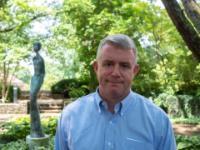 Robert G. Ingram is Professor of Humanities and associate director of the Hamilton Center at the University of Florida. An historian of early modern British religious, political and intellectual history, has written two books and edited five others. His latest book is Reformation without End: Religion, Politics and the Past in Post-Revolutionary England (2018), while he has also recently co-edited People Power: Popular Sovereignty from Machiavelli to Modernity (2022) and Freedom of Speech, 1500–1850 (2020). With Jeffrey Collins, Raffaella Santi, Shannon Stimson and Samuel Garett Zeitlin, he edits a new book on intellectual history called Ideas and Practices, 1300–1850 (Durham University IMEMS Press). He is currently writing a book on the state’s sacralization in post-revolutionary Britain and, with Stephen Taylor and Hannah Smith, is producing a scholarly edition of the memoirs and correspondence of the Whig politician John Lord Hervey, which will be published by Oxford University Press. Robert is also a series editor for Durham University IMEMS Press.
Robert G. Ingram is Professor of Humanities and associate director of the Hamilton Center at the University of Florida. An historian of early modern British religious, political and intellectual history, has written two books and edited five others. His latest book is Reformation without End: Religion, Politics and the Past in Post-Revolutionary England (2018), while he has also recently co-edited People Power: Popular Sovereignty from Machiavelli to Modernity (2022) and Freedom of Speech, 1500–1850 (2020). With Jeffrey Collins, Raffaella Santi, Shannon Stimson and Samuel Garett Zeitlin, he edits a new book on intellectual history called Ideas and Practices, 1300–1850 (Durham University IMEMS Press). He is currently writing a book on the state’s sacralization in post-revolutionary Britain and, with Stephen Taylor and Hannah Smith, is producing a scholarly edition of the memoirs and correspondence of the Whig politician John Lord Hervey, which will be published by Oxford University Press. Robert is also a series editor for Durham University IMEMS Press.
Anne Thayer
Dr. Anne T. Thayer is the Diefenderfer Professor of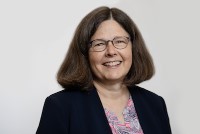 Mercersburg and Ecumenical Theology and Professor of Church History at Lancaster Theological Seminary (Lancaster, Pennsylvania), where she also directs the Doctor of Ministry program. She received a PhD in Religion from Harvard University in 1996. She currently serves as the President of the International Medieval Sermon Studies Society. As an historian, Anne is particularly interested in late medieval and early modern Christianity, the history of preaching and pastoral care, and the popular communication of religious ideas. She is best known for Penitence, Preaching, and the Coming of the Reformation, a survey of late medieval printed model sermon collections and their function in preparing for the varying responses to Luther’s claim of justification by grace alone. Anne’s current research examines the marginalia of Thomas Swalwell, OSB, monk of Durham (d. 1539). Swalwell’s many annotated books, many of which are still in Durham, are windows onto the life and work of a dedicated monk on the eve of the English Reformation. They reveal his lifelong scholarly studies, concern for the integrity of the clergy, diligence in administrative duties, and response to the impending religious changes.
Mercersburg and Ecumenical Theology and Professor of Church History at Lancaster Theological Seminary (Lancaster, Pennsylvania), where she also directs the Doctor of Ministry program. She received a PhD in Religion from Harvard University in 1996. She currently serves as the President of the International Medieval Sermon Studies Society. As an historian, Anne is particularly interested in late medieval and early modern Christianity, the history of preaching and pastoral care, and the popular communication of religious ideas. She is best known for Penitence, Preaching, and the Coming of the Reformation, a survey of late medieval printed model sermon collections and their function in preparing for the varying responses to Luther’s claim of justification by grace alone. Anne’s current research examines the marginalia of Thomas Swalwell, OSB, monk of Durham (d. 1539). Swalwell’s many annotated books, many of which are still in Durham, are windows onto the life and work of a dedicated monk on the eve of the English Reformation. They reveal his lifelong scholarly studies, concern for the integrity of the clergy, diligence in administrative duties, and response to the impending religious changes.
David Messinger
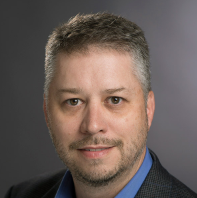 Dr. Messinger received a Bachelors degree in Physics from Clarkson University and a Ph.D. in Physics from Rensselaer Polytechnic Institute. He is currently a Professor and the Xerox Chair in Imaging Science at the Rochester Institute of Technology, where from 2014 – 2022 he was the Director of the Chester F. Carlson Center for Imaging Science. He is a Fellow of SPIE, serves as the co-Chair of the SPIE conference “Algorithms, Technologies, and Applications of Multispectral and Hyperspectral Imaging,” and has published approximately 200 scholarly articles. His research focuses on projects related to spectral image exploitation using physics-based approaches and advanced mathematical techniques with applications to remote sensing and heritage science.
Dr. Messinger received a Bachelors degree in Physics from Clarkson University and a Ph.D. in Physics from Rensselaer Polytechnic Institute. He is currently a Professor and the Xerox Chair in Imaging Science at the Rochester Institute of Technology, where from 2014 – 2022 he was the Director of the Chester F. Carlson Center for Imaging Science. He is a Fellow of SPIE, serves as the co-Chair of the SPIE conference “Algorithms, Technologies, and Applications of Multispectral and Hyperspectral Imaging,” and has published approximately 200 scholarly articles. His research focuses on projects related to spectral image exploitation using physics-based approaches and advanced mathematical techniques with applications to remote sensing and heritage science.
Tim Harris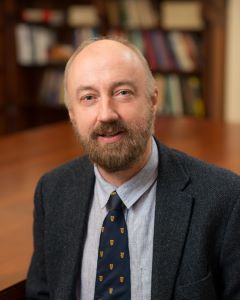
Tim Harris received his BA, MA and PhD from Cambridge University and was a Fellow of Emmanuel College from 1983 before moving to Brown in 1986. He teaches a wide range of courses in the political, religious, intellectual, social and cultural history of early modern England, Scotland and Ireland. A social historian of politics, he has written about the interface of high and low politics, popular protest movements, ideology and propaganda, party politics, popular culture, and the politics of religious dissent during Britain's Age of Revolutions. He edits the book series Studies in Early Modern Cultural, Political and Social History for Boydell Press and is on the editorial board of the journal The European Legacy.
Honorary Fellows
Joanna Barker
Joanna is an alumna of Durham University, ![]() graduating with first class honours in French in 1981. She received an honorary Doctor of Letters degree from Durham University in 2012. She has maintained her links with Durham and is well known to the University as a benefactor. She also sponsored three IMEMS research strands and her generosity was instrumental in setting up the IMEMS Library Fellowship scheme. Joanna's research concentrates on early modern France, notably women's writing. She is a trustee of Elizabeth Montagu Correspondence Online. Joanna has had a 35-year career in international private equity, with 25 years’ experience of serving on boards of international portfolio companies and extensive experience as a charity trustee. She is founder and Trustee of Target Ovarian Cancer. Joanna was awarded an MBE in 2014 for services to people with cancer.
graduating with first class honours in French in 1981. She received an honorary Doctor of Letters degree from Durham University in 2012. She has maintained her links with Durham and is well known to the University as a benefactor. She also sponsored three IMEMS research strands and her generosity was instrumental in setting up the IMEMS Library Fellowship scheme. Joanna's research concentrates on early modern France, notably women's writing. She is a trustee of Elizabeth Montagu Correspondence Online. Joanna has had a 35-year career in international private equity, with 25 years’ experience of serving on boards of international portfolio companies and extensive experience as a charity trustee. She is founder and Trustee of Target Ovarian Cancer. Joanna was awarded an MBE in 2014 for services to people with cancer.
Marco Barducci
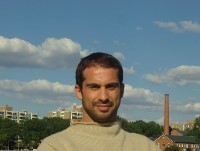
Dr Marco Barducci is interested in the impact of early modern European ideas on British intellectual and political culture. He has published a monograph Hugo Grotius and the Century of Revolution, 1613-1718 (Oxford University Press, 2017), which reconstructs how the writings of Grotius about politics, law and religion were read and used by English political and religious writers during the Century of Revolution. Marco has held a Postdoctoral Fellowship at the University of Roma Tre, as well as academic positions at Durham University’ IMEMS and Institute of Advanced Study, the Institute for Advanced Study (Princeton), the Folger Institute (Washington, DC), the Interdisciplinary Centre for European Enlightenment Studies (Halle-Wittenberg), the University of Florence and the Fondazione Luigi Firpo. (Turin). In 2021 he took up a post at the University of Pavia, Italy.
Andy Hook
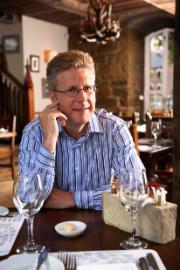 Originating from Cambridge, Andy read Physics & Laser Physics at Swansea University before moving to London to work for Philips as a process engineer in their image-intensifier department specialising in fibre-optics, vacuum and phosphorous coating technologies.
Originating from Cambridge, Andy read Physics & Laser Physics at Swansea University before moving to London to work for Philips as a process engineer in their image-intensifier department specialising in fibre-optics, vacuum and phosphorous coating technologies.
After completing a Diploma in Management Studies at the London Business School he moved to Newcastle to take-up a position as manufacturing manager of a facility making printed circuit boards. However, concluding that engineering and manufacturing was never likely to be part of his long-term future he jumped ship and opened what was his first of several restaurants, Sidney’s in Tynemouth on the north east coast in 1999. This was quickly followed by the opening of Blackfriars, a restaurant within a 13th century former Dominican friary in the medieval heart of Newcastle-upon-Tyne, in 2001. It is here where he developed a keen interest in the Middle Ages and the domestic lives of the mendicant order. A chance meeting with Professor Giles Gasper introduced him to the academic expertise of Durham University’s medievalists and a long-term relationship that has led to a range of collaborations between the University and Restaurant including medieval cooking workshops, talks, lecturers and online courses. In his spare time Andy is a keen allotmenteer, musician, bread-maker and sommelier. He’s a founding member of EAT! Newcastle Gateshead Food Festival, the Grainger Town Forum and board director of Fareshare North East.
Michael Stansfield
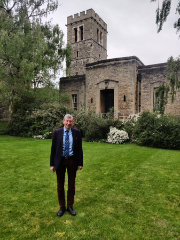 I am an archivist whose career has taken me to Cambridge, Canterbury, Oxford, Durham and now Oxford again. I have been fortunate to develop and facilitate access to some of the major medieval institutional archives in this country, including those of the cathedrals of Canterbury and Durham, and the Oxbridge colleges of King's, Corpus Christi, Merton, and New College, not forgetting the perhaps so far less prominent medieval collection at Raby Castle. This has allowed me to enhance access through cataloguing, digitising, papers, and teaching and promoting to groups of all ages and levels of acquaintance with the medieval world.
I am an archivist whose career has taken me to Cambridge, Canterbury, Oxford, Durham and now Oxford again. I have been fortunate to develop and facilitate access to some of the major medieval institutional archives in this country, including those of the cathedrals of Canterbury and Durham, and the Oxbridge colleges of King's, Corpus Christi, Merton, and New College, not forgetting the perhaps so far less prominent medieval collection at Raby Castle. This has allowed me to enhance access through cataloguing, digitising, papers, and teaching and promoting to groups of all ages and levels of acquaintance with the medieval world.
Eric Cambridge
A graduate of St Andrews and Durham universities, Eric researches the material culture of the middle ages, especially its architecture and archaeology. His doctorate examined the building activities of the later medieval monks of Durham and their stewardship of the cathedral; more recently a growing interest in the geometry and metrology of medieval churches has led him to explore the design of the Romanesque cathedral and its liturgical arrangements. The main focus of his current research is a major collaborative project to publish an archaeology of the friaries of medieval Newcastle and to explore their impact on the development of the town. He is also contributing to an interdisciplinary reassessment of the fourteenth-century Gough Map of medieval Britain and preparing for publication his 2018 Jarrow Lecture on the diocesan structure of early medieval Northumbria. Other projects in the pipeline include a radical reappraisal of the architectural development of the famous Carolingian abbey church of Saint-Riquier in Picardy. A subsidiary enthusiasm is British nineteenth-century architecture. His research in this area includes the genesis of John Dobson’s design for Newcastle Central Station and the later churches of J. L. Pearson, a leading gothic revival architect who spent his formative years in Durham. He also currently serves on the Council of the British Archaeological Association and chairs the Friends of the World of Bede.
Ross Ashton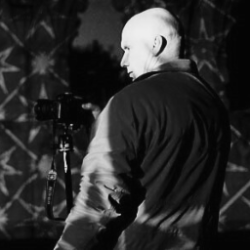
Karen Monid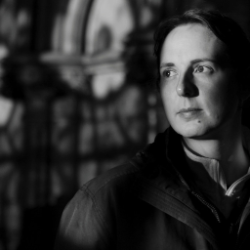
John Munns
John Munns is Associate Professor of History and Art History and a Fellow of Magdalene College, Cambridge, and an Honorary Professor at IMEMS. Much of his research focuses on relationships between images, ideas, and devotional practices in and around post-Conquest England. Other interests include patronage and prosopography; cultural exchange and the so-called twelfth-century renaissance; and aspects of eighteenth/early-nineteenth-century antiquarianism, especially as it relates to the collection and preservation of Romanesque art. He is currently working on a one-volume history of art and architecture in England in the century after the Norman Conquest, as well as a book-length study of twelfth-century English episcopal patronage. John has a long-standing interest in the history of Norman Durham. He spent the Epiphany Term 2022 as the Slater Fellow at IMEMS and University College and was the Principal Investigator for the AHRC-funded research network, ‘Hidden Heritage: Multi-Disciplinary and Multi-Sector Perspectives on the Norman Chapel in Durham Castle’ in 2024-25. He is Editor of the Journal of the British Archaeological Association and chairs the management board of the Corpus of Romanesque Sculpture in Britain and Ireland (www.crsbi.ac.uk).


/prod01/prodbucket01/media/durham-university/research-/research-institutes/institute-of-medieval-and-early-modern-studies/research-strands/1280px-Augsburger_Wunderzeichenbuch_Folio_65.jpeg)